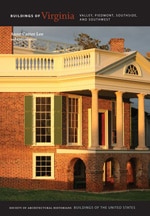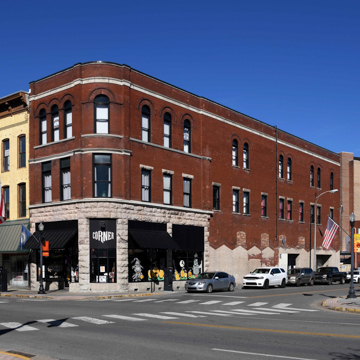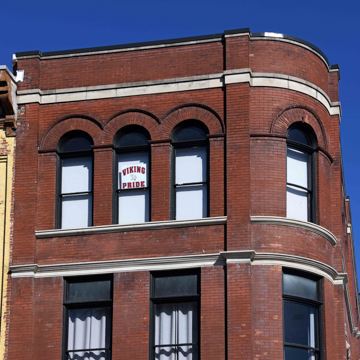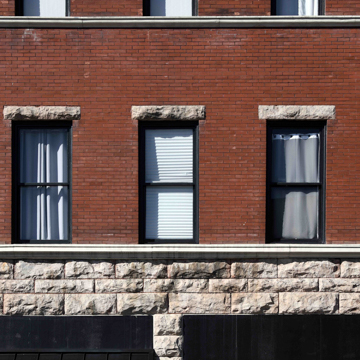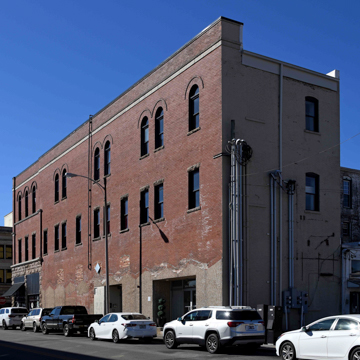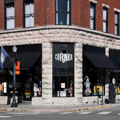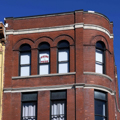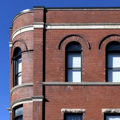One of only a few late-nineteenth-century commercial buildings surviving on State Street, this one curves around the corner of Lee Street. Above the rusticated limestone first story rise two brick stories with Romanesque-inspired arched windows. A simple limestone cornice and a brick parapet complete the building. This building has housed numerous businesses in its history and the third story was once the meeting place for the local Masonic lodge. A good example of the decorative use of brick in early-twentieth-century commercial architecture is the two-story brick building (1922) at 709 State. Dark- and light-red bricks are laid in patterns of diamonds, chevrons, and combinations of stretchers and headers. The building is topped by an equally decorative brick parapet with a central arched parapet outlined in concrete.
You are here
Commercial Building
If SAH Archipedia has been useful to you, please consider supporting it.
SAH Archipedia tells the story of the United States through its buildings, landscapes, and cities. This freely available resource empowers the public with authoritative knowledge that deepens their understanding and appreciation of the built environment. But the Society of Architectural Historians, which created SAH Archipedia with University of Virginia Press, needs your support to maintain the high-caliber research, writing, photography, cartography, editing, design, and programming that make SAH Archipedia a trusted online resource available to all who value the history of place, heritage tourism, and learning.

